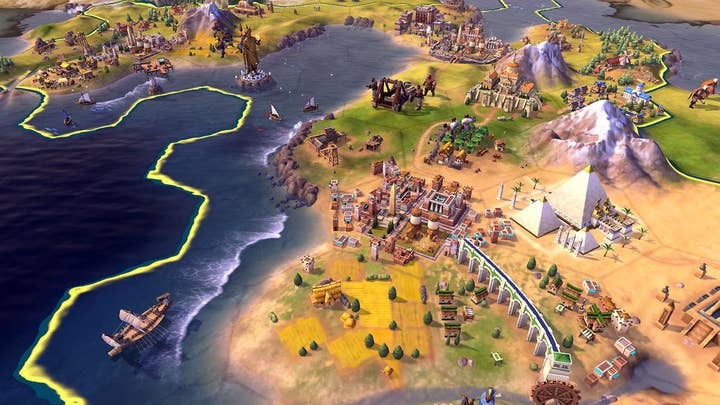2K Games and digital distribution platforms, the company has decided to remove its launcher from all of its titles available on Steam and the Epic Games Store. This change has sent ripples throughout the gaming community, raising questions about the company’s strategy and what it means for players who previously used the launcher for accessing games like NBA 2K, Borderlands, and XCOM. 2K Games’ decision to move away from its proprietary launcher represents a significant pivot in the evolving nature of digital distribution and game management.

The Context of 2K Games’ Launcher Removal
2K Games launched its own proprietary launcher in the past as part of an effort to have greater control over its user base and game distribution. However, with the increasing dominance of platforms like Steam and Epic Games Store, there was growing pressure on 2K to reconsider the necessity of maintaining a separate launcher. The shift has been years in the making, influenced by both player feedback and the evolving competitive landscape in digital game sales.
Digital storefronts have become highly competitive environments, with players gravitating towards the most seamless and integrated platforms. Steam, being the dominant force in the PC gaming market, offers a range of features including cloud saves, achievements, and robust community features. The Epic Games Store, although younger than Steam, has rapidly gained traction due to its frequent free game giveaways and a more developer-friendly revenue split. In this environment, a separate launcher from 2K Games began to feel increasingly redundant.
What Does This Change Mean for Players
For those who have already purchased games from 2K Games through Steam or Epic Games Store, the most significant change will be the removal of the launcher requirement for playing these games. Previously, some 2K titles required players to first launch the 2K Games application before they could access their games. With this change, players will now be able to launch their games directly from the respective storefronts, simplifying the user experience.
However, this transition comes with both positive and negative implications. On the one hand, players will enjoy a more streamlined experience. For example, eliminating the need to maintain a separate launcher means less clutter on their PCs and fewer hurdles when attempting to start a game. On the other hand, players who were accustomed to the features provided by the 2K Games launcher—such as game updates or in-game services—may notice a loss of functionality.
2K has made efforts to reassure players that they will still be able to access essential features like game updates and DLC content through the Steam and Epic Games Store platforms. However, certain legacy features that were exclusive to the 2K Games launcher, such as cloud saving through its system, may be replaced with alternative solutions available through the more widely-used Steam and Epic systems.
Why Did 2K Games Make This Move
There are several reasons behind 2K Games’ decision to phase out its proprietary launcher, though the company has not gone into great detail regarding all the factors that influenced its decision. One major reason is the sheer competition from larger platforms, which have been offering a more compelling experience for both players and developers.
The complexity and inconvenience of maintaining multiple game-launching systems likely played a role as well. Players who had to deal with multiple logins or access points for 2K titles could find the new unified approach much more convenient. It’s also possible that 2K Games hopes to tap into the broader ecosystems and features offered by Steam and Epic Games Store. With these platforms already offering services such as integrated social systems, automatic updates, and community features, 2K may have found it more practical to leverage their infrastructure rather than maintaining an independent system.
Another contributing factor might be the financial incentives. With the Epic Games Store and Steam offering their own promotional strategies—such as discounts, free games, or better revenue-sharing agreements—2K Games likely sees a partnership with these larger platforms as more advantageous than relying on their own, potentially costly, distribution system.
Potential Impacts on Future 2K Games Titles
Looking forward, this move could signal a change in how 2K Games approaches the distribution of its titles. With the launcher now removed from Steam and Epic Games Store, it’s possible that future 2K titles will be exclusively distributed through these platforms. This would allow 2K to focus more on enhancing its titles within these ecosystems, taking advantage of their already-established features.
There is also the potential for deeper integrations with the services offered by Steam and Epic Games Store. For instance, future 2K games might come with more integrated social features, such as achievements or cross-platform play. Epic Games, for example, has been actively pushing for tighter integrations across its ecosystem, including Fortnite and its other titles, making it more appealing for developers like 2K to align with the platform’s growing capabilities.
Additionally, the absence of a proprietary launcher may streamline the process of releasing updates or new content for players. Without needing to rely on a separate system, 2K could push patches and content directly through the main digital distribution platforms, allowing for quicker and more efficient updates.
Possible Backlash from Dedicated Fans
Despite the streamlined approach, there may be some resistance from dedicated players who have become attached to the 2K Games launcher. Fans of certain franchises, like NBA 2K, may have enjoyed the ability to access exclusive in-game content, or they may have used the launcher for features such as automatic patching or account management. These players might feel inconvenienced by the loss of these features and could voice their frustration in online forums or social media.
Moreover, for long-term 2K Games fans who have used the launcher for years, this sudden shift may come across as a change for the sake of convenience rather than an enhancement of their gaming experience. While most players will likely appreciate the unified approach, it will be interesting to see how those who were accustomed to the launcher react.
A Shift Towards Bigger Platforms
This move also highlights a larger trend in the gaming industry. As more developers and publishers opt for storefronts like Steam and Epic Games Store, the future of smaller, independent launchers becomes increasingly uncertain. Many other gaming companies are expected to follow suit, as building and maintaining proprietary launchers has proven to be costly and logistically complex.
For players, this could mean fewer launchers to deal with in the long term, but it also raises concerns about the monopolization of gaming platforms. If a few big platforms come to dominate digital distribution, players might lose out on some of the diversity in how games are distributed. However, given that platforms like Steam and Epic Games Store offer robust infrastructure, the trade-off might be worth it in terms of convenience and access.
A Game-Changing Decision for 2K Games
2K Games’ decision to remove its launcher from Steam and Epic Games Store is a significant shift in the company’s approach to digital distribution. While players will likely benefit from a more streamlined and unified experience, the decision also speaks to the changing dynamics of the gaming industry. As competition from larger platforms continues to grow, smaller players like 2K may find that the most effective strategy is to align with the major players in the field.
Ultimately, this move is part of a broader trend where convenience, speed, and access to a larger ecosystem take precedence over the complexities of maintaining independent systems. For gamers, the most important takeaway is that their experience will likely become simpler and more seamless, but it also signals a larger shift in the digital distribution ecosystem that could shape the future of gaming for years to come.










Add Comment